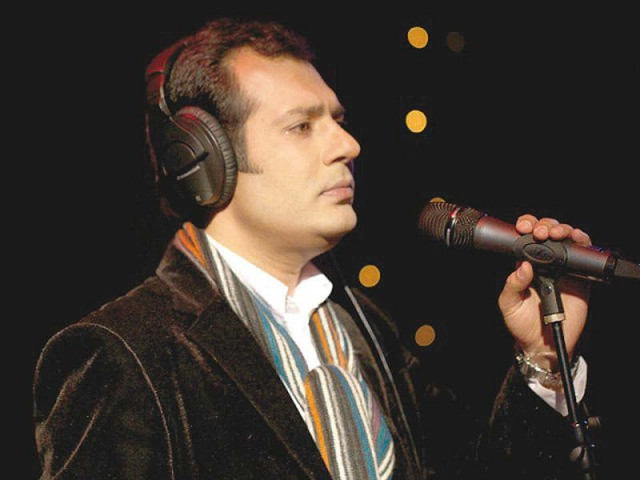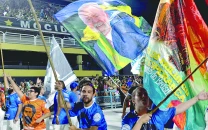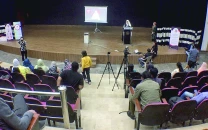Slow death: Piracy drawing the life out of Pashto music
Producers and artists shy away from releasing albums as voice for copyrights gains momentum

Hamayoon Khan, who appeared on Coke Studio season 5, is one of the many Pashto singers, victim to the copyrights cauldron. PHOTO: KOHI MARRI
They say constraints are not always bad. They give birth to ingenuity and provide the opportunity to take the creative leap. Pashto music has thrived for decades within its own frontiers. Be it the cinemas of Peshawar and Nowshera or the border settlements of Torkham, the bazaars of tribal areas or the highlands of Afghanistan, Pashto music has enjoyed a royal status in its confines. This, sadly, is no more the case. The same constraints are now imploding. Why would an average Pashto-speaking parent deny their offspring the right to pursue a career in music? Because they know keeping the stove and records burning simultaneously is no easy feat.
Even worse, what is regarded as the catalyst of the Pakistani music industry’s downfall has almost arrived at the doorstep of Pashto musicians — file sharing, live streaming and counterfeit CDs have brought down the house that was once brimming with talent. While artists and labels are at loggerheads for their respective rights all around, Pashto musicians have decided to take the steering wheel to reclaim what should have been granted to them long ago.
Read: Castaway: The other end of the line
Hamayoon Khan is one such Pashto singer, who has also featured in Coke Studio. He admitted that the issue is not new, “but the situation has now aggravated because it has brought the entire industry to a standstill.” He said piracy is a global phenomenon but the dynamics of Pashto music were always vulnerable to it. “Our artists depend solely on cassette and CD sales. If their limited audience resorts to buying counterfeit CDs or manually downloading music from the internet, the artists are finished.”
The day has arrived when almost every musician is shying away from releasing an album. There was a time when the Pashto music circuit witnessed a new record coming out every second day. Those who are willing to release music have only arrived at the conclusion after deliberating over keeping themselves visible in the industry. The last time an audio album was produced and distributed was that by Haroon Bacha, who made a comeback after a prolonged hiatus. Karan Khan also decided to make use of the ray of hope that never reached him.

Things are no more the same for Khyber-Pakhtunkhwa. Music concerts have become uncommon. Only two film producers remain who will release their movies on Eid. These films carry tracks from specific genres that are meticulously handpicked to provide life support to the movies that die down sooner than later. Not to mention, the minimum contribution of Pashto television that itself is in need of help.
Music producers have themselves chosen the safe path. Those who would sponsor albums and ensure their distribution over the province, tribal heartlands and the neighbouring country have hung up their boots, thanks to the thousands of shops that dole out healthy servings of illegally-obtained content in USBs and counterfeit CDs.
At Rs50 a piece, you have a market for anything and that has been the fate of those, whose sweat and blood have layered those works of art. According to Mehran Music Producers, literally no music is being produced in the industry today. The label’s representative said the companies are in no shape to afford production costs and the strain of recovering them by pushing the CDs through.
Sitting in his dilapidated studio and watching the house burn through the window, the Pashto musician is thinking hard. Pashto singer Zafar Iqrar said, “I produced a music video that cost me Rs0.7 million. All I got in return were a few likes and shares on social media. How will I continue this way?” He maintained that the commercial and art music dichotomy has equally affected the Pashto music industry.
Only last week, members of the fraternity took to the streets in Peshawar, demanding the government to lend them a hand and crack down upon those who usurp their rights. “All this will go on until the government enforces Section 144 on the sale of counterfeited CDs and initiates a crackdown,” said Mehran Music Centre’s Farhad Khan, while admitting that internet piracy is hard to curb.
Published in The Express Tribune, September 14th, 2015.
Like Life & Style on Facebook, follow @ETLifeandStyle on Twitter for the latest in fashion, gossip and entertainment.



















COMMENTS
Comments are moderated and generally will be posted if they are on-topic and not abusive.
For more information, please see our Comments FAQ